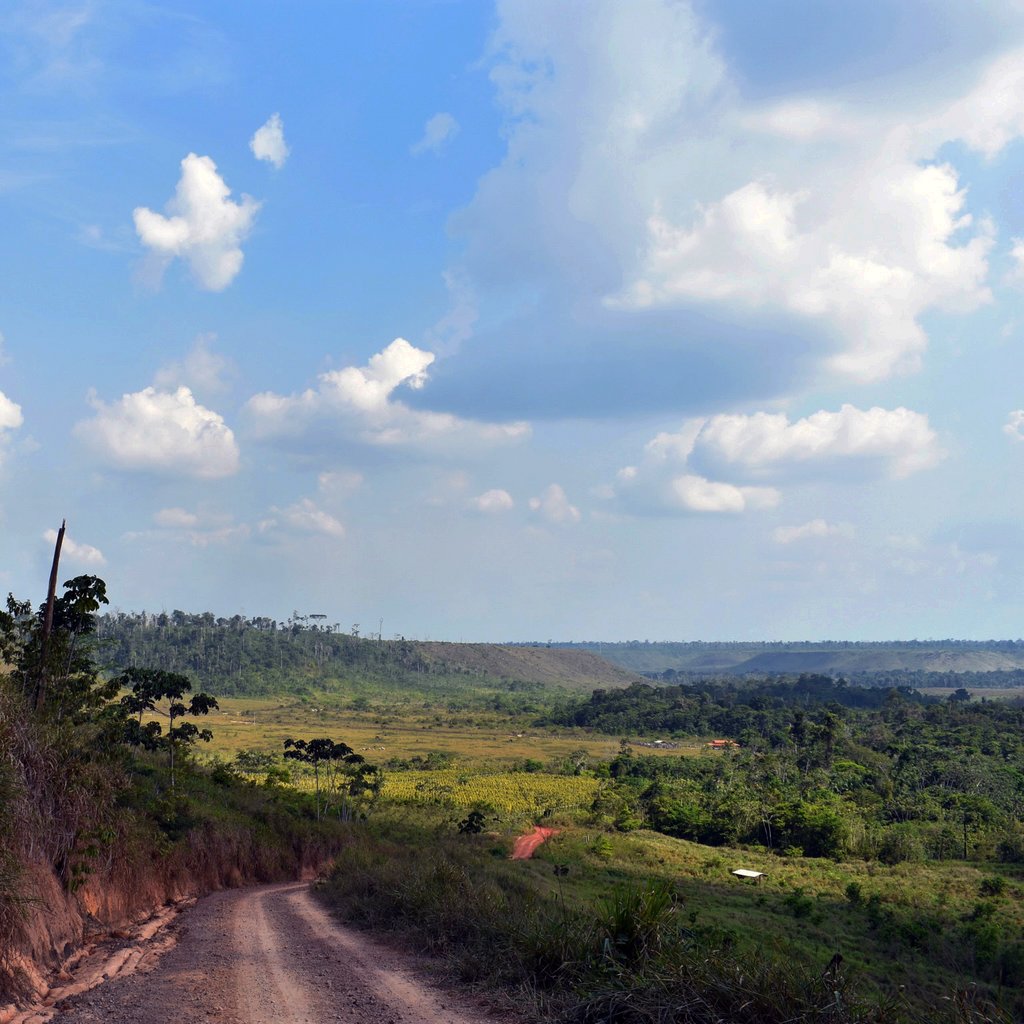The effectiveness of corporate zero-deforestation commitments at reducing agricultural deforestation in Brazil
What do we see in the project photo?
A typical Brazilian Amazon frontier landscape of cattle pasture, small-scale agriculture, and forest patches (many of them degraded/secondary). Amazonian cattle represents the largest driver of tropical deforestation worldwide.
How would you explain to a child what the project is doing?
Most of the cattle and soy in Brazil are bought by large companies. If these companies can stop farmers from deforesting new land, they could protect large areas of forest. However, because the companies buy from many farmers it can be difficult to work out exactly how much deforestation has been prevented.
What is the project’s main objective?
We wanted to understand whether and under what conditions have corporate zero-deforestation commitments reduced deforestation in the Brazilian cattle and soy sectors. For this we investigated varied adoption and implementation of zero-deforestation commitments over space and time.
Why is the project important?
Zero-deforestation commitments have the potential to prevent deforestation by millions of farmers worldwide, but evidence for their efficacy has been limited by challenges in assessing commitment loopholes and adoption. We addressed these issues holistically while considering potential livelihood impacts.
What has been the most positive moment during the project?
Finding the first evidence that cattle zero-deforestation commitments avoided deforestation, protecting 7,000 km2 of forest over the study period! This result shows that these commitments can and are reducing deforestation, helping build a case for further and more rigorous adoption.
What are the biggest challenges encountered in the project?
When doing fieldwork with farmers, we experienced a large amount of distrust. Addressing this required large amounts of time reassuring producers that we were listening to their concerns and that we cared not just about forests, but also about them.
What is the most important lesson learnt from the project?
Corporations can be important conservation actors, but to halt deforestation without causing major negative impacts to human wellbeing requires ambitious corporate policies that helps producers to comply as well as government oversight.
About the project
Title:
The effectiveness of corporate zero-deforestation commitments at reducing agricultural deforestation in Brazil
Contact:
Samuel Levy, Project Leader, ETH Zürich and NYU
Duration:
4.5 years
Funding institutions:
ERC, NSF, Moore Foundation
Implementing institution:
ETH Zürich, Switzerland; University of Wisconsin-Madison, USA; Stockholm Environment Institute, Sweden; Université catholique de Louvain, Belgium; Boston University, USA
Links to further information:
https://zerodeforestationimpacts.com/

